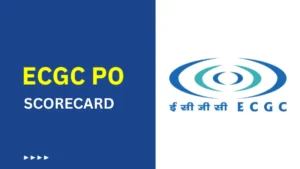Reasoning Questions for SBI PO Prelims 2019
Reasoning Ability is an onerous section. With the increasing complexity of questions, it becomes hard for one to give it the cold shoulder. The only way to make the grade in this particular section in the forthcoming banking exams. And, to let you practice with the best of the latest pattern questions, here is the Adda247 Reasoning Quiz based on the exact same pattern of questions that are being asked in the exams.
Directions (1-5): Study the following information carefully and answer the given questions:
Nine students A, B, C, D, E, F, G, H and I are sit¬ting in a straight line equidistant from each other, but not necessarily in the same order. Some of them are facing south while some are facing north.
F sits third from one of the extreme ends of the row and facing same direction as I but opposite to H. More than three persons sits between B and F. A sits second to the left of the one who sits third to the right of B who is facing south. I sits third to the right of E, neither I nor E immediate neighbour of F. Only three persons sit between G and E and both are facing same direction. Four persons sit between C and D both are facing same direction as B. Both immediate neighbour of E facing same direction. H is not immediate neighbor of C.
Q1. Who among the following sits third to the left of E?
A
B
C
D
F
Solution:
(i)- F sits third to one of the extreme ends of the row and facing same direction as I but opposite to H. More than three persons sits between B and F. A sits second to the left of the one who sits third to the right of B who is facing south. I sits third to the right of E, neither I nor E immediate neighbour of F. There are two possibility.
(ii)- Only three persons sit between G and E and both are facing same direction. Four persons sit between C and D both are facing same direction as B. By using this condition case-1 will be eliminated and position of E, I and G has been fixed. H is not immediate neighbor of C. The final arrangement is-
Q2. How many persons sits between F and the one who sits second right of I?
None
two
three
one
four
Solution:
(i)- F sits third to one of the extreme ends of the row and facing same direction as I but opposite to H. More than three persons sits between B and F. A sits second to the left of the one who sits third to the right of B who is facing south. I sits third to the right of E, neither I nor E immediate neighbour of F. There are two possibility.
(ii)- Only three persons sit between G and E and both are facing same direction. Four persons sit between C and D both are facing same direction as B. By using this condition case-1 will be eliminated and position of E, I and G has been fixed. H is not immediate neighbor of C. The final arrangement is-
Q3. How many persons are facing south direction?
Two
Three
Five
One
Four
Solution:
(i)- F sits third to one of the extreme ends of the row and facing same direction as I but opposite to H. More than three persons sits between B and F. A sits second to the left of the one who sits third to the right of B who is facing south. I sits third to the right of E, neither I nor E immediate neighbour of F. There are two possibility.
(ii)- Only three persons sit between G and E and both are facing same direction. Four persons sit between C and D both are facing same direction as B. By using this condition case-1 will be eliminated and position of E, I and G has been fixed. H is not immediate neighbor of C. The final arrangement is-
Q4. What is the position of D with respect of F?
Fourth to the left
Immediate right
Fifth to the right
Immediate Left
Third to the right
Solution:
(i)- F sits third to one of the extreme ends of the row and facing same direction as I but opposite to H. More than three persons sits between B and F. A sits second to the left of the one who sits third to the right of B who is facing south. I sits third to the right of E, neither I nor E immediate neighbour of F. There are two possibility.
(ii)- Only three persons sit between G and E and both are facing same direction. Four persons sit between C and D both are facing same direction as B. By using this condition case-1 will be eliminated and position of E, I and G has been fixed. H is not immediate neighbor of C. The final arrangement is-
Q5. Who among the following sits third from the left end?
E
G
C
A
F
Solution:
(i)- F sits third to one of the extreme ends of the row and facing same direction as I but opposite to H. More than three persons sits between B and F. A sits second to the left of the one who sits third to the right of B who is facing south. I sits third to the right of E, neither I nor E immediate neighbour of F. There are two possibility.
(ii)- Only three persons sit between G and E and both are facing same direction. Four persons sit between C and D both are facing same direction as B. By using this condition case-1 will be eliminated and position of E, I and G has been fixed. H is not immediate neighbor of C. The final arrangement is-
Directions (6-10): Study the following information to answer the given questions:
A*B means A is not greater than B
A%B means A is not greater than or equal to B
A&B means A is not smaller than B
A#B means A is not smaller than or equal to B
A@B means A is not greater than or smaller than B
Q6. Statements: Y*T&V@X*J%M#P
Conclusions: I. P % T
Conclusions: I. P % T
II.M & X
Only I is follow
Only II is follow
Either I or II follow
Neither I nor II follow
Both I and II are follow
Solution:
I. P % T (false) II.M & X(false)
Q7. Statement: U@ B, U % L, R * L, R * T
Conclusions: I. L # B
II. L @ B
Only I is follow
Only II is follow
Either I or II follow
Neither I nor II follow
Both I and II are follow
Solution:
I. L # B(true) II. L @ B(false)
Q8. Statements: M&L#A@W%Z, A@T&U%Y
Conclusions: I. M*Y
II.Z#U
Only I is follow
Only II is follow
If either I or II follow
If neither I or II follow
If both I and II follow
Solution:
I. M*Y (false) II.Z#U(true)
Q9. Statements: N # W & M, T @ M * V, X & M
Conclusions: I. W % V
II. N * X
Only I follows
Only II follows
Either I or II follows
Neither I nor II follows
Both I and II follows
Solution:
I. W % V (false) II. N * X(false)
Q10. Statements: A&B#C@D*E
Conclusions: I. B#E
II. E&B
Only I follows
Only II follows
Either I or II follows
Neither I nor II follows
Both I and II follows
Solution:
I. B#E(false) II. E&B(false)
Q11. In a number 783546891634, if first six digits are arranged in descending order from left to right within the number and last six digits are arranged in descending order from right to left then which of the following is 10th from the right end?
9
6
7
1
8
Solution:
original number- 783546891634
After rearrangement- 876543134689
Q12. If 2 is subtracted from all the even digits and 3 is added to all the odd digits in the number 3821546 then how many digits get repeated in the number thus formed?
None
four
two
one
three
Solution:
original number= 3821546
No. obtain according to the question= 6604824
Q13. How many such numerals are there in the number ‘563841972’ which will remain at the same position when arranged in descending order from left to right?
Three
Four
Two
None
One
Q14. In the number 678219534027, If first digit interchange with seventh digit, second digit interchange with eighth digit and so on until sixth digit is interchange with twelfth digit. Which of the following digit is 8th from the right end?
6
4
2
7
None of these
Solution:
original number- 678219534027
Obtain number- 534027678219
Q15. How many such numerals are there in the number ‘4789362451’ which will remain at the same position when arranged in ascending order from left to right?
Three
Four
Two
None
One






 GA Capsule for SBI Clerk Mains 2025, Dow...
GA Capsule for SBI Clerk Mains 2025, Dow...
 The Hindu Review October 2022: Download ...
The Hindu Review October 2022: Download ...
 ECGC PO Scorecard 2025 Out, Check Marks
ECGC PO Scorecard 2025 Out, Check Marks




